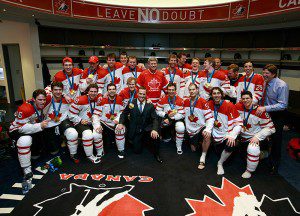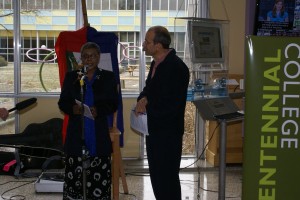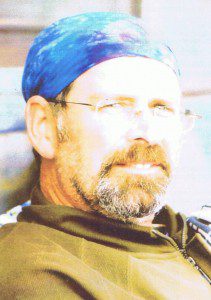 I simply went to exchange a Christmas gift. By 11 a.m. on Dec. 30, I reached the electronics store in south Whitby, Ont. But because of holiday demand, the store didn’t have much selection left. So, they gave me a credit and asked me to come back in the new year. I headed home – northbound on Thickson Road. It was just after noon. On the radio they were about to announce the roster for Team Canada, the men’s Olympic hockey team.
I simply went to exchange a Christmas gift. By 11 a.m. on Dec. 30, I reached the electronics store in south Whitby, Ont. But because of holiday demand, the store didn’t have much selection left. So, they gave me a credit and asked me to come back in the new year. I headed home – northbound on Thickson Road. It was just after noon. On the radio they were about to announce the roster for Team Canada, the men’s Olympic hockey team.
“Ladies and gentlemen,” the announcer said, “Steve Yzerman.”
That’s the last sound that came from my car radio. At that moment, I entered the intersection of Thickson and Rossland, east of downtown Whitby. As I did, a one-ton pickup truck suddenly came at me from the right. Before I could react, we collided and my car was spinning clockwise. I thought, “There’s going to be a second impact … a pole … another vehicle … or a least the curb.” But it never came.
Fortunately, my little old Corolla just stopped spinning on its own. And – seconds later – when I focused, I was facing the opposite direction. The truck that had hit me sat crosswise in front of me. I was covered in glass and debris from the truck’s front-end and what was left of the passenger’s side of my car. Then I consciously looked to my hands and feet. Thankfully, I could move them. A woman approached and told me my head was bleeding. And I suddenly felt pain there. A moment or two later a man with a cell phone to his ear approached from the driver’s side, opened the door and spoke with a bit of an accent.
(more…)
 The 21st Winter Olympics wrapped up Sunday night. The closing ceremony began with a moment that could only have happened in Canada. Uniquely able to poke fun at themselves, Canadian organizers allowed speed skater Catriona Le May Doan to light that fourth cauldron – the one that malfunctioned during the opening ceremony. Then, thousands of spectators and athletes opened their mouths and let patriotism come out.
The 21st Winter Olympics wrapped up Sunday night. The closing ceremony began with a moment that could only have happened in Canada. Uniquely able to poke fun at themselves, Canadian organizers allowed speed skater Catriona Le May Doan to light that fourth cauldron – the one that malfunctioned during the opening ceremony. Then, thousands of spectators and athletes opened their mouths and let patriotism come out.
 Earlier this week, I happened to be on a massage table. Because my massage therapist also happens to be one of the most plugged-in and erudite people I know, she and I talked about the devastation in Haiti. To my surprise, she informed me that Uxbridge has become involved. She said that among a number of awareness-raising and fund-raising activities, the Rotary Club of Uxbridge has rallied to assist victims of last Tuesday’s earthquake. I wondered how our community – so far away from the disaster – could hope to deliver any tangible help.
Earlier this week, I happened to be on a massage table. Because my massage therapist also happens to be one of the most plugged-in and erudite people I know, she and I talked about the devastation in Haiti. To my surprise, she informed me that Uxbridge has become involved. She said that among a number of awareness-raising and fund-raising activities, the Rotary Club of Uxbridge has rallied to assist victims of last Tuesday’s earthquake. I wondered how our community – so far away from the disaster – could hope to deliver any tangible help. It happened early last spring. With just a few days remaining before I led one of my annual tours to the battlefields of Europe, I paid a visit to the man who regularly supplies me with this country’s greatest calling card.
It happened early last spring. With just a few days remaining before I led one of my annual tours to the battlefields of Europe, I paid a visit to the man who regularly supplies me with this country’s greatest calling card. I simply went to exchange a Christmas gift. By 11 a.m. on Dec. 30, I reached the electronics store in south Whitby, Ont. But because of holiday demand, the store didn’t have much selection left. So, they gave me a credit and asked me to come back in the new year. I headed home – northbound on Thickson Road. It was just after noon. On the radio they were about to announce the roster for Team Canada, the men’s Olympic hockey team.
I simply went to exchange a Christmas gift. By 11 a.m. on Dec. 30, I reached the electronics store in south Whitby, Ont. But because of holiday demand, the store didn’t have much selection left. So, they gave me a credit and asked me to come back in the new year. I headed home – northbound on Thickson Road. It was just after noon. On the radio they were about to announce the roster for Team Canada, the men’s Olympic hockey team.